Agenda
Monday, March 14
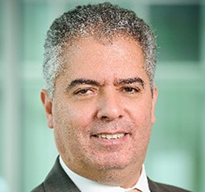
Chokri Ben Amor
Summit Executive Chair
VP Production and Corporate QHSE
NESR
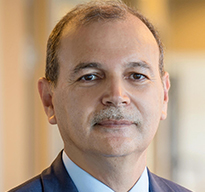
Kamel Ben-Naceur
2022 SPE President
Nomadia Energy
Keynote Speaker:
HE Naif Al Abri
President of Oman Civil Aviation Authority and
Head of the National Council on Climate Change
Guest of Honor:
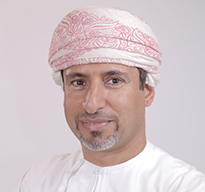
HE Salim Al Aufi
Undersecretary
Ministry of Energy and Minerals
Oman
Session Chair(s):

Chokri Ben Amor
Summit Executive Chair
VP Production and Corporate QHSE
NESR
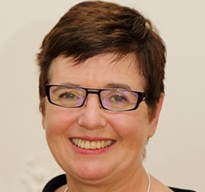
Johana Dunlop
Summit Graphic and Content Advisor
Membership Engagement Manager
IOGP
Moderator(s):

Kamel Ben-Naceur
2022 SPE President
Nomadia Energy
Speaker(s):
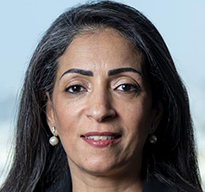
Najla Al-Jamali
CEO of Alternative Energy
OQ
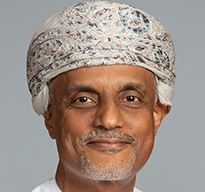
Yousuf Al Ojaili
President
BP Oman
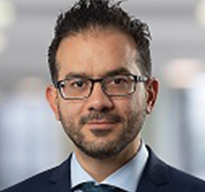
Walid Hadi
SVP and Country Chair
Shell Development Oman LLC
Moutaz Riyami
Gas Director
PDO
Energy is the pivotal sustainability challenge facing humanity which has reached a point in history whereby tensions between our continued ability to meet our daily needs and the resilience of our planet’s ecological thresholds have reached a point that imperils the balance of life on the planet. Humanity and its civilization project are vulnerable and the latest UNFCCC reports out on 28th February highlights adaptation, mitigation, and resilience as its key themes.
Every country is engaged in intense efforts to achieve an orderly energy transition balancing the rights to the wellbeing of their citizens with the wellbeing of the planet. This is no simple undertaking, not least because so many elements are beyond the direct control of sovereign decision-makers.
The oil and gas industry finds itself at the center of these societal megatrends as the leading industry meeting humanity’s energy needs and as indicated by demand, supply, and transition trends will need to ensure its capacity to continue meeting those needs for decades to come, despite opposition. Equally the industry needs to show that it is part of the solution and committed to decarbonizing its products but also is as a significant market-maker that is investing in the acceleration of the development of alternate energy sources and supplies.
The industry that created the first global energy system is ideally positioned to create and catalyze the second global energy system as its integrator and linchpin.
Finally, the world will come to the Middle East region for UNFCCC COP 27 and 28 undoubtedly the COPs that history will look back on as having changed the world, moved the needle, and probably saved the planet. Oman has been a sustainability leader for some time exemplified in particular by the nation's highly effective In-Country Value strategies and is showing the same level of insight, excellence, and commitment in directing and aggregating its national energy transition. Recent audacious decisions have developed national execution capability to an extent that can move needles, capture the opportunities and overcome the challenges.
This high-level executive session will share insights from the individuals leading the Oman Energy Transition and will set the stage for the first SPE Oman Gaia Summit focused on accelerating the operationalization of sustainability performance deep inside the fast-evolving oil and gas industry.
Session Chair(s):
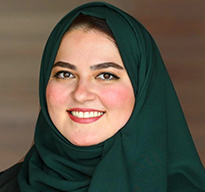
Ameerah Bokhari
Petroleum Scientist
Saudi Aramco
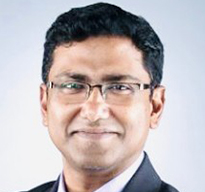
Aziz Rahman
Associate Professor
Texas A&M University at Qatar
Moderator(s):
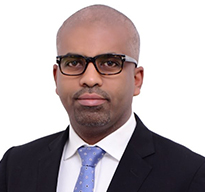
Salih Merghani
EVP Energy Sector
The Olayan Group
Speaker(s):
Haleema Alamri
Advisor
Ministry of Energy, Sustainability and Innovation Division, Saudi Arabia
Former Scientist
Saudi Aramco
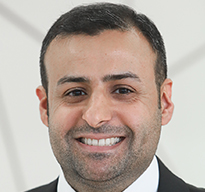
Ammar Alshehri
Head of Upstream Carbon Circularity
Saudi Aramco
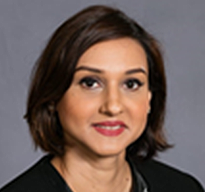
Tamara Khan
VP Finance
BP Oman
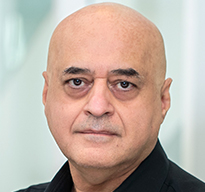
Kourosh Salehi-Ashtiani
Associate Professor
NYU Abu Dhabi
This session will provide the means to generate ideas and pathways for actions and plans to ensure our planet's sustainability challenges, reinforcing our existing efforts and introducing new radical ideas. The experts and policymakers will share knowledge and discuss the new energy paradigm of decarbonized O&G, energy storage, hydrogen, renewables, and sustainability in the session. We will find pathways optimizing the mix of hydrocarbons and alternative energy sources to enable an inclusive transition towards net-zero emissions. We will share technical knowledge and strategies for new markets, new business models, new systems, new techniques, new technologies, new processes, new mindsets to evolve a supply of energy that supports human activity inside planetary boundaries. Framing questions include but not limited to:
1. How can we better position ourselves as an industry and region, such that we are ready and comfortable in embracing systemic bottoms-up change in sustainability practices?
2. Do we know where do we stand and what we are after in terms of reduction of emissions - regionally and locally?
Session Chair(s):
Christiaan Luca, Community Wisdom Partners; Narjis Mustafa, BP Oman
Moderator(s):

Johana Dunlop
Summit Design and Content Advisor
Membership Engagement Manager
IOGP
Speaker(s):
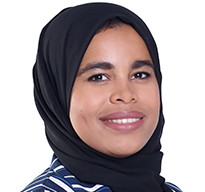
Rumaitha Al Busaidi
Director
Environment Society of Oman
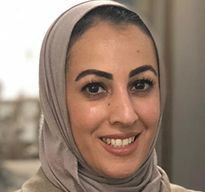
Thuraya Al Taei
Communications and External Affairs Manager
BP Oman
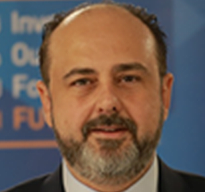
Bashar Kassab Hassan
Corporate Affairs Manager
Basrah Gas Company

Bayan M. Hefzi
Upstream Environmental Advocacy, Strategy and Policy Lead
Saudi Aramco
We are operating in an increasingly assertive world and are confronted with a broad variety of stakeholders with often conflicting interests and polarizing opinions. Traditional one-way communication styles - "let us tell you what we plan to do" - are no longer adequate nor sufficient. In the oil and gas industry, indeed all industries, a global, and local, shift in mindset in how we listen and communicate is required to preserve our license to operate and to find our new role in the energy transition.
Listening, understanding, and willingness to address stakeholder concerns, needs and expectations, thinking ‘outside-in’, are the basis for true engagement.
For a company to speak with one voice and engage consistently to the outside world, strong internal alignment and coordination, and rigorous planning are required. In addition, we need to play by continuously evolving internationally accepted rules, displaying transparency, inclusiveness and fairness.
In this session practitioners from inside and outside the oil and gas industry will push the boundaries of traditional communication towards proactive stakeholder engagement and fulfill our highest purpose: improving quality of life.
Facilitator(s):
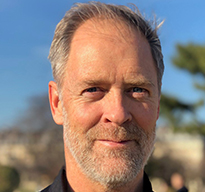
Peter Day
Independent Consultant

Bianca Gainus
Graphic Recorder
The Visual Help
Session Chair(s):
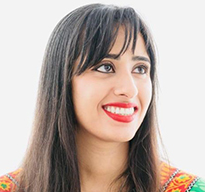
Lamya Harub
Summit Program Chair
Energy Security and Policies Lead
OQ
Suha Saif
Summit Program Co-Chair
GCC Sustainability Director
NESR
This pre-cursor session to Day 2's visioneering will aim to close the day by reflecting on what’s been shared in the opening executive plenary as well as session 1 on the 'New Energy System' and session 2 on 'Stakeholder Engagement', collect inputs and ideas that were exchanged throughout the day and the feedback from table discussions.
The focus will be on “moving the needle, not just ticking boxes” through leaning back on the principles of aggregation, collaboration, and engagement within the Gaia 9-element Strategic Programming Framework—a core part of achieving the collective aspiration set for year 2 of Gaia, which is 2022.

Chokri Ben Amor
Summit Executive Chair
VP Production and Corporate QHSE
NESR
Tuesday, March 15
Facilitator(s):

Peter Day
Independent Consultant

Chokri Ben Amor
Summit Executive Chair
VP Production and Corporate QHSE
NESR
Session Chair(s):
Suhail Diaz, ADNOC; Agnieszka Pawlak, Carbon Connect International
Moderator(s):

Talal Al Aulaqi
SPE Oman Section
Speaker(s):
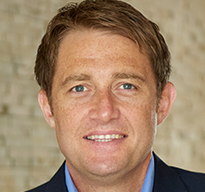
Neil Flemming
Managing Director
Asset integrity Engineering
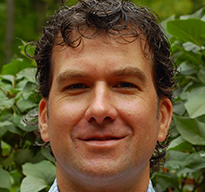
Jean-Francois Gauthier
VP Sales and Marketing
GHGSAT
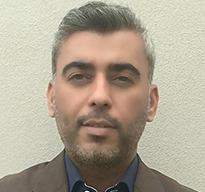
Salman A. Muhaiteeb
Upstream Environmental Performance Advisor
Saudi Aramco
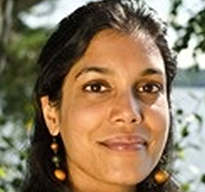
Deepti Sewraz
Senior Consultant
DNV Maritime Advisory
DNV AS
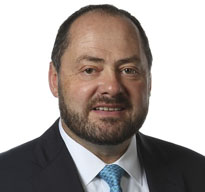
Darcy Spady
2018 SPE President
Managing Partner
Carbon Connect International
As it has been famously put, you can’t manage something if you can’t measure it. We can argue the validity of this statement, but what is truly important is if we are measuring what actually matters. Is the data that we are collecting meaningful, adequately measured, and providing the right information to manage our systems? Are there other aspects of our operations that we would benefit from monitoring more directly and effectively? Do we have the right baseline to measure and track our targets?
When it comes to energy system transformation, measurements are necessary to understand the performance as well as to appropriately evaluate options and make decisions accordingly. But what does fit-for-decision sustainability performance data look like? What data do operations and R&D need in order to prioritize and allocate resources to innovative sustainability performance factors? How do we effectively use the data for ESG reporting to make corporate sustainable business decisions which could affect equity investing and corporate bonds and also reduce impacts on ecological thresholds of the planet and social foundations of society? Should regulations for measurements and improvements be imposed as part of a license to operate or a specific contracting strategy? This session will look at experience with respect to measurements in the GCC countries as well as globally, and their plans forward.
Session Chair(s):
Muhammad Ibrahim, Schlumberger (Qatar & Kuwait); Simon Wilson, Five Oceans International
Moderator(s):
Simon Wilson, Five Oceans International
Speaker(s):
Head of Corporate Environment
PDO
General Manager
Bauer Nimr
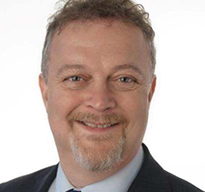
Peter Gilchrist
Senior Consultant, Biodiversity
Saudi Aramco
Vice Chair, Biodiversity and Ecosystem Services Working Group
IPIECA
50% of global GDP depends on nature [WEF, 2020]; we have lost 60% of species in the last 40 years—no company would tolerate such depletion of key assets
Nature does not send invoices but she does create bad debts—they’re called externalities!
"Climate change and biodiversity loss are two of the most pressing issues of the Anthropocene. While there is recognition in both scientific and policy-making circles that the two are interconnected, in practice they are largely addressed in their own domains. Only by considering climate and biodiversity as parts of the same complex problem, can solutions be developed.”
IPCC IPBES joint workshop report, 2021
Nature has no voice and cannot send invoices yet nature plays a vital role in mitigating and abating global warming and provides countless ecosystem services sustaining the global economy and human civilization.
Amongst the ecosystem services provided by nature are its carbon sequestration capabilities. For example, each year the world’s forests absorb roughly 15.6 billion tonnes of carbon dioxide (CO2), which is equivalent to 40% of global CO2 emissions. For this reason, forests serve as a vital tool in regulating the global temperature and achieving net-zero emissions by 2050. Around 8.1 billion tonnes of CO2 leaks back into the atmosphere each year.
There are emerging technologies and management approaches that rely on processes that harness nature, so-called nature-based solutions. There are also practices emerging that avoid depletion or ensure regeneration.
Join us and engage with our panel of speakers who will consider questions such as:
- How can we measure or what’s the right measurement of our industry impact on natural capital?
- Is there one size fits all for natural capital? What could be a definition of Natural Capital for Oman?
- What types of nature-based solutions are ready to apply today?
- How should we factor natural capital into the cost of doing business as opposed to calling it an externality?
- What do we not yet understand about nature, natural systems, and systems thinking?
- How can we measure or what’s the right measurement of our industry impact on natural capital?
- What SPE can do on the topic? Can it be training, definition, influencing, etc?
Facilitator(s):

Peter Day
Independent Consultant

Bianca Gainus
Graphic Recorder
The Visual Help
Session Chair(s):
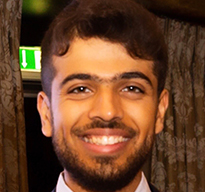
Mohamed Al Balushi
Summit Program Co-Chair
SPE Gaia Program Regional Liaison, MENA
Reservoir Engineer
BP Oman

Johana Dunlop
Summit Design and Content Advisor
Membership Engagement Manager
IOGP
Day 2's visioneering session will come at the end of the summit and position us very well to answer the question of “how we can be additional in achieving change, where change is needed, in a way with which we are able to execute on our sustainability-focused practices”. It will build on the pre-cursor session on Day 1 and incorporate further reflections from what’s been shared in the fireside chat on 'Circular Economy' along with session 3 on 'Measuring What Matters' and session 4 on 'Natural Capital'. Inputs and ideas exchanged throughout the summit and feedback garnered from table discussions will then help produce a way forward for attendees to answer the big question of how we go about achieving change in execution. It will also feed into the content that is shared with all delegates in the aftermath of the SPE Gaia Summit.
The focus will revolve around “being additional” by harnessing the strengths of the SPE in collecting, disseminating, and exchanging technical knowledge through pathways of innovation, measuring what matters, and most importantly of all, listening and communication. Coupled with that objective, this visioneering session will aim to link the three aforementioned pathways of the 9-element Sustainability Programming Strategic Framework to its three priorities, such that it helps "bring the outside in" and meet societal needs, closing the summit nicely and allowing us to further realize our aspiration of moving the needle during year 2 of Gaia, which is 2022.

Kamel Ben-Naceur
2022 SPE President
Nomadia Energy

